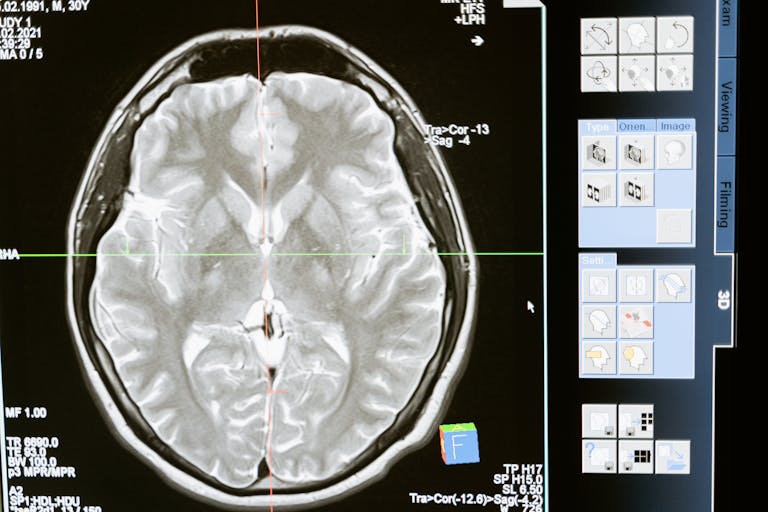The Science of Gratitude
How a Simple Habit Can Change Your Brain and Body
We often hear that we should be more grateful. It’s a sentiment echoed in self-help books, on inspirational posters, and in the advice of our elders. But what if gratitude was more than just a polite platitude? What if it was a practice with the power to tangibly change your brain, your body, and your life? In recent years, scientists have turned their attention to this ancient virtue, and the findings are nothing short of remarkable. This isn’t just feel-good advice; it’s evidence-based science.
What Happens in Your Brain When You’re Grateful?
Thanks to modern neuroimaging techniques like fMRI, we can now peek inside the brain and see what happens when we experience gratitude. The results are fascinating.
A Rush of “Feel-Good” Chemicals: When you express or receive gratitude, your brain releases a cocktail of “feel-good” neurotransmitters, primarily dopamine and serotonin. These are the same chemicals that are targeted by many antidepressant medications. This release provides an immediate mood boost, making you feel happier and more content from the inside out.
Activating the Prefrontal Cortex: Gratitude has been shown to activate the medial prefrontal cortex, a brain region associated with understanding others’ perspectives, empathy, and relieving stress. Studies by researchers like Zahn et al. have shown that this area is stimulated when we experience feelings of gratitude, suggesting a deep connection between gratitude and social-emotional intelligence.
Changes in the Limbic System: The limbic system, which includes the amygdala and hippocampus, is the emotional center of the brain. Gratitude has been shown to have a calming effect on the amygdala, the brain’s “fear center,” while promoting the function of the hippocampus, which is crucial for memory and regulating stress. This may explain why a regular gratitude practice can help reduce feelings of anxiety and protect against depression. Gratitude reduces amygdala hyperactivity and supports hippocampal function.
The Ripple Effect on Your Physical Health
The benefits of gratitude aren’t just in your head; they ripple throughout your entire body.
Improved Sleep: A study published in the Journal of Psychosomatic Research found that participants who kept a gratitude journal reported sleeping longer and feeling more refreshed upon waking. This is likely due to gratitude’s ability to shift our pre-sleep thoughts from anxious worries to more positive reflections.
Reduced Aches and Pains: In a groundbreaking study by renowned gratitude researchers Robert Emmons and Michael McCullough, participants who wrote about things they were grateful for each week reported fewer physical symptoms, including headaches, stomachaches, and respiratory infections, compared to those who focused on their daily hassles.
A Healthier Heart: Research has indicated that gratitude can have a positive impact on heart health. A study on patients with heart failure found that those who practiced gratitude journaling showed reduced inflammation and a healthier heart rate variability, which is a key indicator of cardiovascular health.
A Stronger Immune System: While more research is needed in this area, the link between gratitude, stress reduction, and overall well-being suggests a potential boost to the immune system. By lowering stress hormones like cortisol, gratitude may help your body better fight off illness.
The Psychological and Social Perks
The science is clear: gratitude is a powerful tool for enhancing your mental and social well-being.
Increased Happiness and Life Satisfaction: Meta-analyses of numerous studies have confirmed that gratitude interventions, such as writing gratitude letters or keeping a journal, lead to significant increases in happiness and life satisfaction.
Building Resilience: Gratitude can be a powerful antidote to negative emotions and a key factor in building resilience. By helping you to appreciate what you have, it can make it easier to cope with adversity and bounce back from stressful life events.
Strengthening Relationships: Gratitude is a social emotion. The “find-remind-bind” theory of gratitude, proposed by psychologist Sara Algoe, suggests that gratitude helps us to find good relationships, remind us of their value, and bind us closer to the people who matter most. Initiate, maintain, and strengthen relationships. Expressing gratitude to others can foster a cycle of kindness and reciprocity, creating stronger, more positive social bonds.
How to Cultivate Gratitude: Evidence-Based Practices
The best part about the science of gratitude is that you can easily put it into practice. Here are a few simple, scientifically backed ways to cultivate more gratitude in your life:
Keep a Gratitude Journal: This is the most studied gratitude intervention. Once a day, or even just a few times a week, write down three to five things you are grateful for. Be specific and try to savor the feeling of gratitude as you write.
Write a Gratitude Letter: Think of someone who has had a positive impact on your life and write them a heartfelt letter of thanks. For an extra boost, deliver it in person and read it aloud.
Practice Gratitude Meditations: There are many guided meditations available that focus on cultivating gratitude. These can help you to focus your attention on the good things in your life.
Use Visual Reminders: Place reminders to be grateful in your home or workspace. This could be a simple note on your mirror or a picture that evokes feelings of thankfulness.
The Takeaway
Gratitude is more than just a fleeting emotion; it’s a practice that can reshape your brain, improve your health, and deepen your relationships. The science is robust and growing, confirming what many have known intuitively for centuries: a grateful heart is a happier, healthier heart. So, what are you grateful for today?
References:
Emmons, R. A., & McCullough, M. E. (2003). Counting blessings versus burdens: An experimental investigation of gratitude and subjective well-being in daily life. Journal of Personality and Social Psychology, 84(2), 377–389.
Sansone, R. A., & Sansone, L. A. (2010). Gratitude and well-being: the benefits of appreciation. Psychiatry (Edgmont), 7(11), 18–22.
Wood, A. M., Froh, J. J., & Geraghty, A. W. (2010). Gratitude and well-being: The benefits of appreciation. Clinical Psychology Review, 30(7), 890-905.
Zahn, J., et al. (2009). The neural basis of human social values: evidence from functional MRI. Cerebral Cortex, 19(2), 276-283.
Dickens, L. R. (2017). Using gratitude to promote positive change: A series of meta-analyses. Journal of Happiness Studies, 18(4), 1159-1178.






